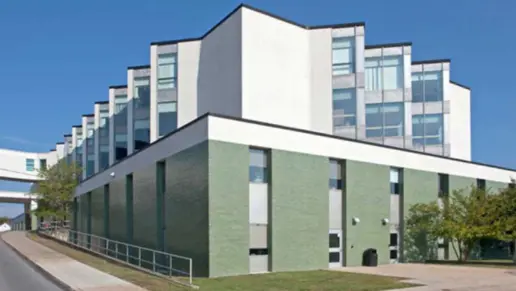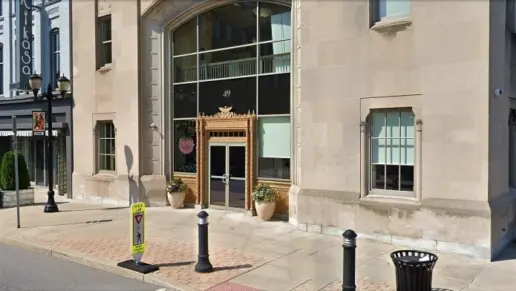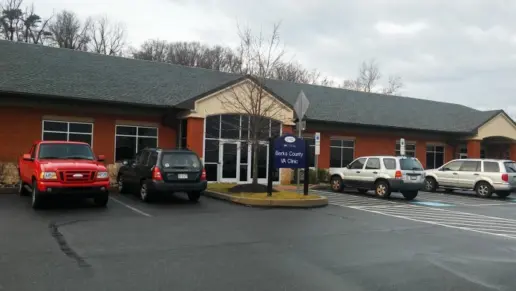About Jade Wellness Outpatient Drug Rehab Treatment Center
Jade Wellness Outpatient Drug Rehab Treatment Center in Monroeville, Pennsylvania helps men and women overcome substance use disorders. Their outpatient treatment options include detox, partial hospitalization and intensive and general outpatient care. This facility is known to provide an excellent recovery experience through individualized treatment. Their clinical staff is described as caring, friendly and experienced.
Their outpatient detox incorporates medication assisted treatment (MAT). This technique uses meds approved by the FDA alongside counseling to support recovery. The facility has a diverse choice of meds for this purpose. The specifics will depend on your unique condition. Some of the available options include Suboxone, Suboclade, Vivitrol and Brixadi. These meds minimize withdrawal symptoms and curb cravings. This ensures your withdrawal is safe and comfy. You can then continue your recovery journey through any of their outpatient treatment options.
Your choice will depend on the level of support you need for sustained sobriety. The partial hospitalization program is more structured and involves more therapy sessions. This makes it ideal if you require more support but not 24/7 supervision. You can expect a minimum of 20 hours of treatment involving four to six hours sessions daily for five days a week.
This program offers individual, family and group therapy. The goal is to develop solid coping skills, prevent relapse and stay sober via a deeper connection to self and a great sense of self-worth. You’ll also have access to psychiatric services and peer support. The program even incorporates spiritual guidance and motivational enhancement.
The intensive outpatient care is more flexible and involves just nine hours of group therapy weekly. The sessions include morning, afternoon and evening schedules to fit diverse schedules. This makes it ideal if you seek to maintain your daily routine while receiving treatment. The group therapy draws from clinically proven models like CBT and DBT. You’ll also benefit from individual and family therapy and addiction education classes.
This program focuses on developing life skills like stress/anger management that promote sound coping strategies and prevent relapse. It may also involve participation in self-help or other community recovery groups to help you build robust support networks. The program enables you to gradually ease back into daily life and work. That way you can handle your responsibilities while staying focused on recovery. Upon completing the program you’ll have access to aftercare support to help you maintain lasting recovery.
Alternatively, you can continue your recovery via their general outpatient program. This involves two to four hours of group counseling weekly alongside a weekly or monthly individual session. The group counseling enables you to connect with a supportive community of individuals on similar journeys. This enhances your coping skills and facilitates a lasting recovery experience.
Aftercare services include monthly or bimonthly sessions that help you maintain the recovery progress gained during the programs. They also offer ongoing support including access to their psychiatric services and MAT. The facility also provides free NARCAN for opioid overdose prevention, alcohol/drug education and certified peer support services.
Latest Reviews
Rehab Score
Gallery
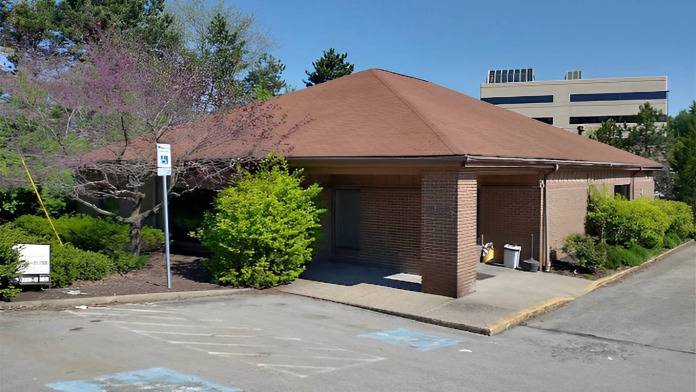
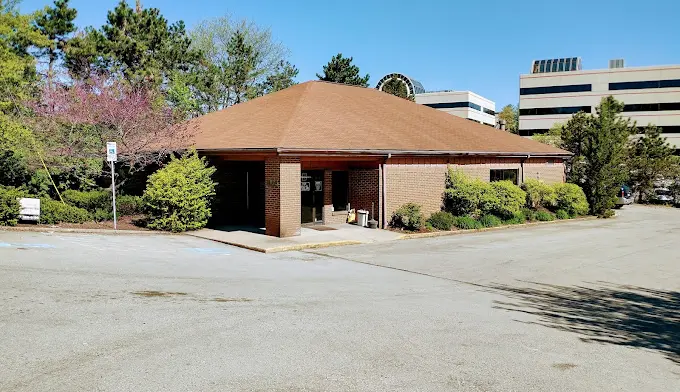
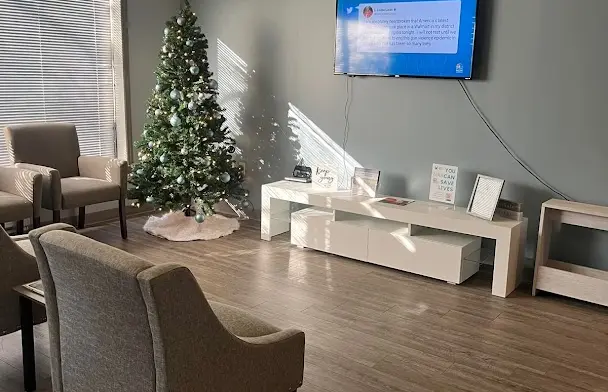
Location
Accepted Insurance
Other Forms of Payment
Private insurance refers to any kind of healthcare coverage that isn't from the state or federal government. This includes individual and family plans offered by an employer or purchased from the Insurance Marketplace. Every plan will have different requirements and out of pocket costs so be sure to get the full details before you start treatment.
Self-pay involves paying for treatment out of your own pocket. You can use savings or credit, get a personal loan, or receive help from family and friends to fund your treatment. If you don't have insurance or your insurance plan doesn't cover a specific program, self-pay can help ensure you still get the care you need.
Medicare is a federal program that provides health insurance for those 65 and older. It also serves people under 65 with chronic and disabling health challenges. To use Medicare for addiction treatment you need to find a program that accepts Medicare and is in network with your plan. Out of pocket costs and preauthorization requirements vary, so always check with your provider.
Military members, veterans, and eligible dependents have access to specific insurance programs that help them get the care they need. TRICARE and VA insurance can help you access low cost or no cost addiction and mental health treatment. Programs that accept military insurance often have targeted treatment focused on the unique challenges military members, veterans, and their families face.
Medicaid is a state based program that helps lower-income individuals and families pay for healthcare. Medicaid covers addiction treatment so those enrolled can use their coverage to pay for rehab. When a program accepts Medicaid the client often pays very little or nothing out of their own pocket.
Addiction Treatments
Levels of Care
Treatments
The goal of treatment for alcoholism is abstinence. Those with poor social support, poor motivation, or psychiatric disorders tend to relapse within a few years of treatment. For these people, success is measured by longer periods of abstinence, reduced use of alcohol, better health, and improved social functioning. Recovery and Maintenance are usually based on 12 step programs and AA meetings.
Drug rehab in Pennsylvania is devoted to the treatment of addiction. Levels of care, treatment methods, and settings differ, but the aim of each program is to end drug dependency and empower participants to achieve long-term recovery.
Many of those suffering from addiction also suffer from mental or emotional illnesses like schizophrenia, bipolar disorder, depression, or anxiety disorders. Rehab and other substance abuse facilities treating those with a dual diagnosis or co-occurring disorder administer psychiatric treatment to address the person's mental health issue in addition to drug and alcohol rehabilitation.
Opioid rehabs specialize in supporting those recovering from opioid addiction. They treat those suffering from addiction to illegal opioids like heroin, as well as prescription drugs like oxycodone. These centers typically combine both physical as well as mental and emotional support to help stop addiction. Physical support often includes medical detox and subsequent medical support (including medication), and mental support includes in-depth therapy to address the underlying causes of addiction.
Substance rehabs focus on helping individuals recover from substance abuse, including alcohol and drug addiction (both illegal and prescription drugs). They often include the opportunity to engage in both individual as well as group therapy.
Programs




Clinical Services
Cognitive behavioral therapy (CBT) in Pennsylvania can be helpful to individuals who are experiencing substance use disorder and various mental health conditions. It helps you identify damaging thought and behavior patterns and replace them with healthy ones.
Dialectical behavior therapy in Pennsylvania is an evidence based technique that involves group therapy, individual therapy, and phone coaching. Group sessions focus on learning behavioral skills. Individual therapy gives you the opportunity to apply what you're learning to your personal situations. Phone coaching allows you to call your therapist during the week for help with challenging situations.
Group therapy is any therapeutic work that happens in a group (not one-on-one). There are a number of different group therapy modalities, including support groups, experiential therapy, psycho-education, and more. Group therapy involves treatment as well as processing interaction between group members.
In individual therapy, a patient meets one-on-one with a trained psychologist or counselor. Therapy is a pivotal part of effective substance abuse treatment, as it often covers root causes of addiction, including challenges faced by the patient in their social, family, and work/school life.
Motivational interviewing in Pennsylvania gives you the opportunity to share your perspective and explore your ideas and motivation for change. Your therapist will walk you through the four steps of engaging, focusing, evoking, and planning to empower you to make any desired changes in your life.
Trauma therapy addresses traumatic incidents from a client's past that are likely affecting their present-day experience. Trauma is often one of the primary triggers and potential causes of addiction, and can stem from child sexual abuse, domestic violence, having a parent with a mental illness, losing one or both parents at a young age, teenage or adult sexual assault, or any number of other factors. The purpose of trauma therapy is to allow a patient to process trauma and move through and past it, with the help of trained and compassionate mental health professionals.
Couples therapy in Pennsylvania is typically short term treatment that focuses on building skills that lead to positive long term relationship changes. Sessions with the therapist may occur both jointly and individually.
Research clearly demonstrates that recovery is far more successful and sustainable when loved ones like family members participate in rehab and substance abuse treatment. Genetic factors may be at play when it comes to drug and alcohol addiction, as well as mental health issues. Family dynamics often play a critical role in addiction triggers, and if properly educated, family members can be a strong source of support when it comes to rehabilitation.
Two nicotine replacement therapy medicines have been approved by the FDA. Bupropion decreases cravings and withdrawal symptoms. Varenicline reduces the urge to smoke and the enjoyment you get from cigarettes. Nonprescription therapies include gum, patches, and lozenges.
Amenities
-
Residential Setting
-
Private Rooms
Accreditations

State Licenses are permits issued by government agencies that allow rehab organizations to conduct business legally within a certain geographical area. Typically, the kind of program a rehab facility offers, along with its physical location, determines which licenses are required to operate legally.
State License: Pennsylvania
Contact Information
4105 Monroeville Boulevard
Monroeville, PA 15146





